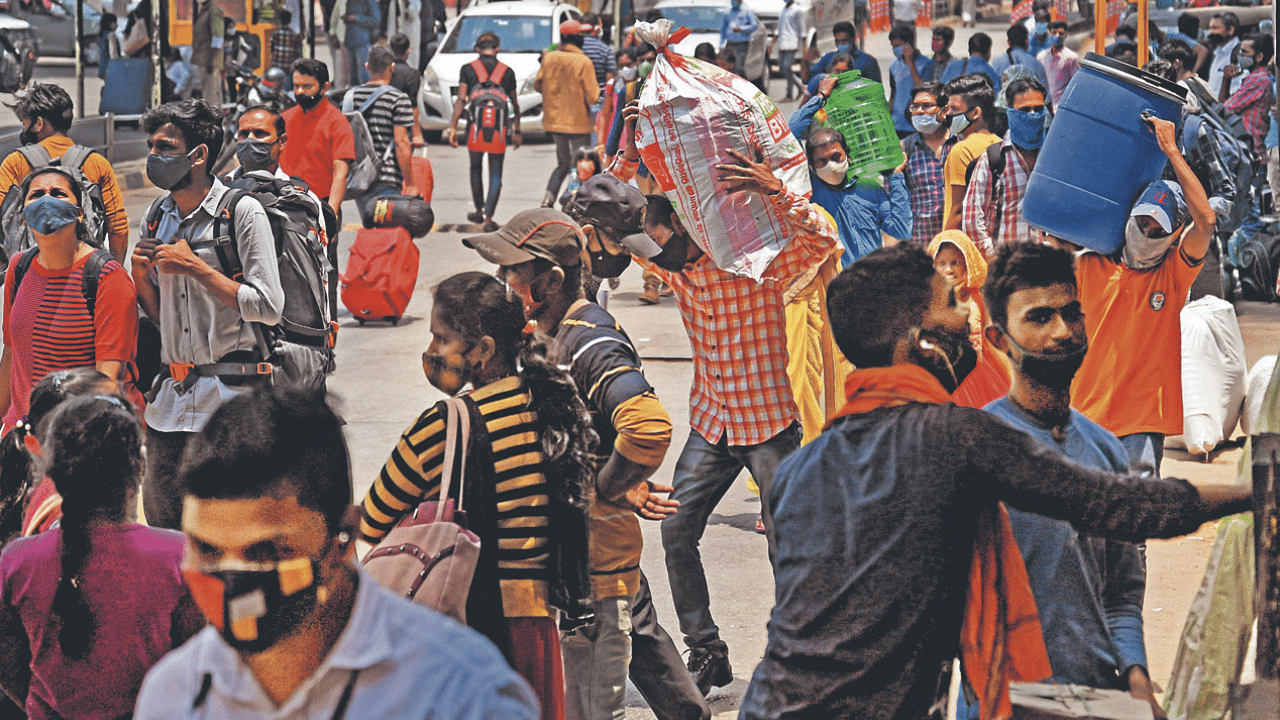
Three months after the Karnataka government did the second serosurvey in January and analysed the results in February, it is yet to release the findings. The State health department has been sitting on the report, though sources say it was submitted to the health minister's office in February and the findings were briefed to top health department officials in the same month.
Done across 30 districts, with a sample size of 35,000 odd people as against the first serosurvey where a mere 16,565 were surveyed, sources told DH, the survey found that 17 per cent of those surveyed had developed antibodies and 12 per cent of those surveyed had an active infection. The seropositivity was higher in metropolitan cities like Bengaluru with 19 per cent to 20 per cent compared to other districts.
An expert told DH, "The study found that 29 per cent of the population were either currently infected or had already been exposed to the infection in the past, as of January this year which is 2.05 crore people." This is a marginal increase from the first serosurvey's estimate.
Out of 7.07 crore estimated population in Karnataka, the first serosurvey estimated that 1.93 crore (27.3 per cent) of the people are either currently infected or already had the infection in the past, as of September 16, 2020.
Experts said they were surprised by the second survey's results as they were expecting a higher level of exposure. In the first serosurvey, 16.4 per cent of those surveyed had developed antibodies and 12.7 per cent had an active infection. These figures have only marginally changed in the second survey.
Sources said the cost of RT-PCR tests done in the second survey were significant but absorbed by the state's testing system.
"Rapid antigen tests were not done in the second serological survey. But IgG tests (antibody tests) cost Rs 300 per sample in the second serological survey, kits for which were already available with the State Surveillance Unit from the first survey. Cost of human resources, logistics (transportation), IT infrastructure, syringes, Viral Transport Medium vials, vacutainers were significant," a source said.
Considering that 17 per cent of those surveyed (35,000), had antibodies, this works out to 5,950 people. Antibody tests for these people alone work out to Rs 17.85 lakh not counting the cost of human resources, logistics and other consumables.
"The study was done five months back and there is not much difference between the kind of exposure we found in the first serosurvey and the second. It was submitted to the health minister as he wanted to release it just like he released the first serosurvey findings. We don't know why the health department is sitting on it," said the expert.
When DH contacted Health Minister Dr K Sudhakar's office for a response, it yielded no response.
Waning antibodies?
The state has already undertaken another substudy to understand how long the antibodies in a person persist and now those results are being analysed. "We have to check the IgG levels repeatedly to know how long antibodies persist in the body. The samples have been taken. The lab has to check the level of antibodies in the samples now," said a source.
For the substudy, the number of samples being tested varies between 600 and 900. "One IgG test costs Rs 600 per sample as new kits are being used," said another source.
